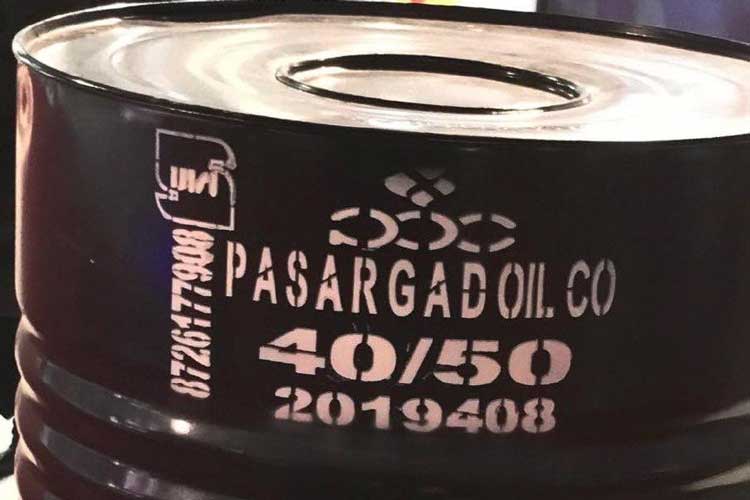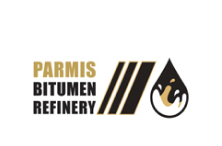Did you know that many civil engineering projects suffer from premature deterioration due to the improper selection of bitumen? Engineers and contractors often fail to identify the right grade for their structures, which significantly reduces the service life of infrastructure. If you want to understand why Pasargad Bitumen has become the first choice for Iran’s national and export projects, follow this comprehensive Parmis article to the end.
Pasargad Bitumen and Its Role in Iran’s Road Construction and Infrastructure Projects
Pasargad Oil Company is one of the largest bitumen producers in Iran and the Middle East. With six refineries located in Tehran, Tabriz, Arak, Bandar Abbas, Abadan, and Shiraz, the company plays a central role in meeting the demands of the country’s infrastructure projects. Established in 2003 (1382 H.S.), Pasargad has relied on advanced technologies to produce a wide range of bitumen grades that comply with international standards.
Pasargad bitumen is extensively used in the construction of roads, highways, airports, dams, and major civil works across the country. High quality, traceability, diverse packaging solutions, and compliance with ASTM, ISIRI, and EN standards have given Pasargad products a premium position not only in the domestic market but also in exports to countries such as India, China, Turkey, and various African nations.
Moreover, Pasargad bitumen is considered one of Iran’s key non-oil export commodities, playing a vital role in generating foreign currency revenues even during periods of international sanctions. Its strategic importance, combined with internationally recognized certifications and active participation in mega-projects, has made Pasargad Bitumen the preferred choice for contractors, consultants, and government agencies.
The Establishment and Expansion of Pasargad Oil Company
The foundation of Pasargad Oil Company in 2003 was a strategic step toward privatization and strengthening Iran’s bitumen value chain. From the beginning, the company’s mission was to consolidate production capacity and build a nationally trusted brand in both domestic and export markets.
In less than two decades, Pasargad successfully established six large-scale bitumen plants adjacent to strategic oil refineries. This integration allowed for an efficient production cycle—from feedstock supply to packaging and export. By setting up advanced quality control laboratories and obtaining international certifications, Pasargad gained the trust of both domestic and international infrastructure projects.
Today, Pasargad is recognized as a pioneer in innovation within the industry, producing a wide product portfolio that includes penetration grades, viscosity grades, oxidized bitumen, and polymer-modified bitumen (PMB). It is not only a domestic supplier but also a major global exporter of Iranian bitumen.
Why Pasargad’s Chemical Composition Makes It the First Choice for Engineers
Pasargad bitumen is formulated with high resistance against permanent deformation (rutting), excellent thermal stability, strong adhesion to aggregates, and flexibility at low temperatures. Laboratory testing confirms that Pasargad grades demonstrate lower aging rates and superior resistance to rutting and thermal cracking compared to similar products.
This high level of performance—especially in VG grades and PMB grades—offers a competitive advantage for long-life infrastructure projects. As a result, Pasargad’s chemical formulations are frequently specified in tender documents and technical requirements for major road construction projects.
Pasargad Bitumen Grades and Their Technical Applications
Pasargad Bitumen offers a diverse range of grades tailored to different climatic and engineering conditions, including:
- Bitumen 60/70: The most widely used penetration grade, balancing hardness and softness, ideal for most climates and urban asphalt paving.
- Bitumen 85/100: A softer grade suitable for cold climates.
- VG10 bitumen: A viscosity grade suitable for thin asphalt layers and colder conditions.
- VG30 bitumen: High resistance to deformation, ideal for medium to hot climates and heavy traffic roads.
- VG40 bitumen: The hardest grade, suitable for very hot regions and heavily loaded surfaces such as airports.
Penetration vs. Viscosity Grades
Penetration grades (e.g., 60/70, 85/100) are defined by the penetration of a standard needle at a specified temperature, making them suitable for flexible pavements and cold climates.
Viscosity grades (e.g., VG10, VG30, VG40) are classified by viscosity at specific temperatures, providing more predictable performance under heavy loads and temperature variations—ideal for highways and airports.
Specialized Applications of Pasargad Bitumen
Pasargad bitumen is a strategic product for Iran’s infrastructure sector. It is widely applied in:
- Road construction (surface courses, base layers, and protective coatings)
- Airports (using PMB for high elasticity and crack resistance under aircraft loads)
- Dams and large-scale hydro projects
- Industrial insulation and waterproofing applications
With the ability to be blended with polymers and engineering additives, Pasargad bitumen is also used to produce PMB and rubber-modified bitumen, extending performance under extreme conditions.
Role in Highways, Airports, and Dams
In highways, VG30 and VG40 grades withstand heavy traffic and resist premature pavement failure, especially in hot climates.
In airports, PMB grades improve elasticity and high-temperature resistance, essential for withstanding the impact of repeated landings.
In dam construction, Pasargad’s durability and low aging rate contribute to long-term water resistance and structural stability.
Conclusion
The introduction of Pasargad Bitumen highlights its position as one of Iran’s most important bitumen sources for domestic infrastructure, industrial use, and export markets. From VG30 grades for high-traffic areas to penetration grades like 60/70, Pasargad offers a wide range of solutions for contractors, exporters, and construction professionals. For more insights into bitumen products and related technical guides, explore additional articles on Parmis Blog.
FAQs
In what projects is Pasargad Bitumen most widely used?
Pasargad bitumen is extensively applied in highways, airport runways, dams, metro systems, and structural waterproofing projects.
What is the difference between VG30 and 60/70 in Pasargad Bitumen?
VG30 is recommended for hot and heavy-traffic regions, while 60/70 is mainly used in temperate areas with lower traffic loads.
What should be considered when exporting Pasargad Bitumen?
Key factors include grade selection, packaging type, updated customs permits, and transportation routes, as these directly affect both final price and delivery time.


